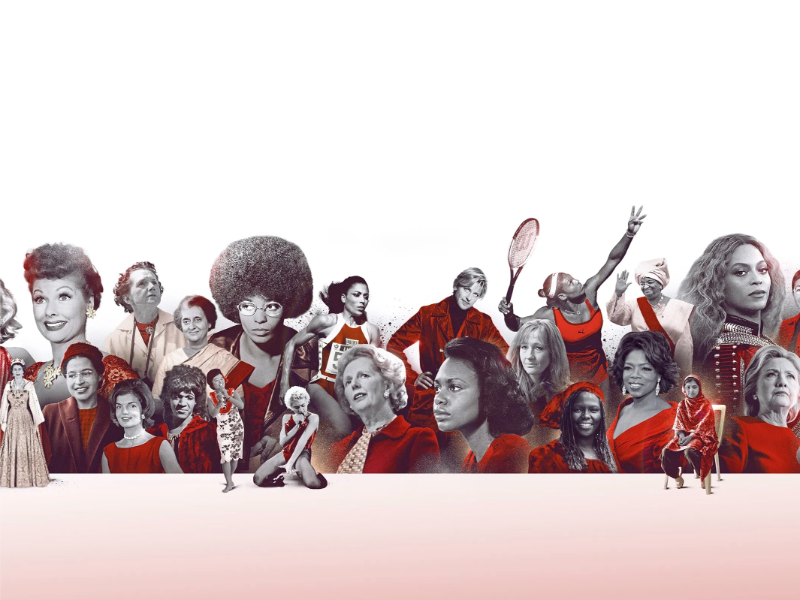- This list highlights 10 remarkable women making strides in AI, including leaders like Amba Kak (AI Now Institute), Francesca Mani (AI activism against deepfakes), and Sasha Luccioni (AI and climate change at Hugging Face).
- Their contributions span AI ethics, climate action, public safety, storytelling, and global governance, showcasing the diverse and transformative potential of AI.
OUR TAKE
Ten influential women in AI are recognised for their contributions across various domains. Amba Kak focuses on AI governance and social justice, Francesca Mani advocates against deepfake abuses, and Sasha Luccioni uses AI for climate action. Elizabeth Kelly ensures AI safety, while Daniela Amodei works on responsible AI development. Scarlett Johansson explores AI’s role in storytelling, and Arati Prabhakar shapes U.S. AI strategy. Zhang Linghan specialises in AI and data privacy law, Amandeep Singh Gill promotes global AI cooperation, and Katja Grace researches the long-term implications of AGI.
-Rae Li, BTW reporter
1. Amba Kak
As co-executive director of the AI Now Institute, Kak is at the forefront of research into AI governance and policy. Her work focuses on how AI impacts social justice, particularly around issues of privacy, surveillance, and accountability. She is a strong advocate for ethical frameworks in AI, making sure that this technology benefits all of society, not just the powerful.
Also read: TIME reveals the 2024 TIME100 AI list, highlighting key figures
2. Francesca Mani
At just 15, Francesca is one of the youngest voices in AI. She launched a campaign against sexualised deepfakes after becoming a victim of fake AI images herself. Her advocacy shines a light on the darker sides of AI, especially the need for stronger protections against misuse of generative technologies.
Also read: Credit Saison invests $100M in Brazil to boost Latin American expansion
3. Sasha Luccioni
As Hugging Face’s AI and Climate Lead, Luccioni uses AI to address the global climate crisis. Her pioneering work demonstrates how machine learning can predict climate trends, offering tools for better environmental policy and response. She bridges the gap between tech and environmental sustainability.
4. Elizabeth Kelly
The director of the U.S. Artificial Intelligence Safety Institute, Kelly is responsible for ensuring that AI advancements do not come at the cost of public safety. Her institute focuses on creating guidelines for AI safety that can be implemented across industries, making her a critical figure in safeguarding the future of AI.
5. Daniela Amodei
Co-founder of Anthropic, Amodei is deeply involved in AI safety research. She explores ways to make large-scale AI models less prone to harmful outputs, thus preventing the risks posed by unchecked AI. Her role in developing responsible AI technologies is setting new standards for safety and ethics in the industry.
6. Scarlett Johansson
Known for her film career, Johansson has also delved into AI storytelling, collaborating with innovators to explore how AI can enhance narrative and creativity in the entertainment industry. Her unique perspective integrates the arts and technology, highlighting the cultural impacts of AI.
7. Arati Prabhakar
As Director of the White House Office of Science and Technology Policy, Prabhakar plays a pivotal role in shaping the U.S.’s national AI strategy. She is focused on balancing innovation with public interest, ensuring that AI development aligns with democratic values and human rights.
8. Zhang Linghan
A professor at the Institute of Data Law, Zhang specialises in AI and data privacy law. Her research has been instrumental in shaping China’s legal framework for AI, especially in terms of how personal data is collected and used by AI systems. She is a critical voice in developing international AI law.
9. Amandeep Singh Gill
As the UN Tech Envoy, Gill works to promote AI as a tool for peace and sustainable development. He focuses on global cooperation to harness AI’s power for social good, while also mitigating risks associated with its misuse on an international scale.
10. Katja Grace
Co-founder and lead researcher at AI Impacts, Grace examines the long-term implications of artificial general intelligence (AGI). She explores both the potential benefits and existential risks posed by AGI, contributing vital insights into how humanity can prepare for and responsibly guide this technology.

